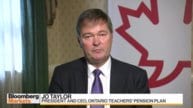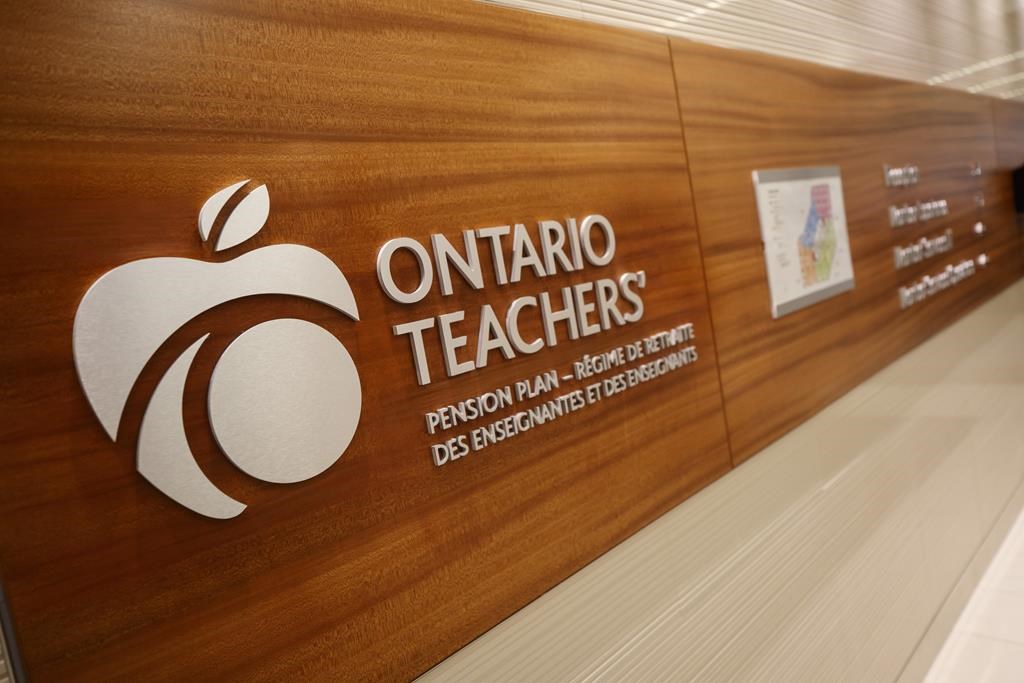
In light of continuing developments in relation to FTX, we wanted to provide additional context and transparency around our investment.
In October 2021, Ontario Teachers’ invested US$75 million in FTX International and its US entity (FTX.US). In January 2022, we made a follow-on investment of US$20 million in FTX.US. These investments were made through our Teachers’ Venture Growth (TVG) platform, alongside a number of global investors, to gain small-scale exposure to an emerging area in the financial technology sector. Our investment represented less than 0.05% of our total net assets and equated to ownership of 0.4% and 0.5% of FTX International and FTX.US, respectively.
TVG was established in 2019 to invest in emerging technology companies raising late-stage venture and growth capital. Investments are structured to provide Ontario Teachers’ with returns commensurate with the risk undertaken and to provide proprietary insights that inform investing elsewhere across the Plan. Naturally, not all of the investments in this early-stage asset class perform to expectations, however, since inception, TVG has delivered solidly on intended objectives.
Ontario Teachers’ investment departments, including TVG, conduct robust due diligence on all private investments. Supported by experienced, external consultants with financial, commercial, and other relevant expertise, and often in consultation with investment partners, due diligence is designed to use company-provided materials and other research to assess the risk related to a specific investment. In FTX’s case, our underwriting process included working closely with third-party advisors and FTX to explore commercial, regulatory, tax, financial, technical and other matters. Recognizing that no due diligence process can uncover all risks especially in the context of an emerging technology business, the investment in FTX was sized moderately in relation to TVG and the overall portfolio of the Plan.
Recent reports suggest potential fraud conducted at FTX which is deeply concerning for all parties. We fully support the efforts of regulators and others to review the risks and causes of failure for this business.
Our strategy aims to diversify investments across asset classes, geography, time horizons and economic outcomes, to mitigate risk and enhance returns. This supports the Plan’s ability to perform well in a variety of investment environments and mitigates the adverse impact of any one investment loss on the fund overall. The investment size in FTX reflects our approach to diversification.
We will be writing down our investment in FTX to zero at our year end. The financial loss from this investment will have limited impact on the Plan, given its size relative to our total net assets and our strong financial position. However, we are disappointed with the outcome of this investment, take all losses seriously and will use this experience to further strengthen our approach.
Updated November 17, 2022
Ontario Teachers writes off FTX stake, citing potential fraud
, Bloomberg News
Ontario Teachers’ Pension Plan said it will write down its stake in FTX to zero, taking a US$95 million loss barely a year after making its first investment in Sam Bankman-Fried’s now-bankrupt cryptocurrency exchange.
Teachers said the writedown will have only a “limited impact” because it’s less than 0.05 per cent of the $242.5 billion (US$182 billion) pension fund. “However, we are disappointed with the outcome of this investment, take all losses seriously and will use this experience to further strengthen our approach,” the fund said in a statement Thursday.
The Toronto-based pension manager put US$75 million into FTX’s international and U.S. divisions in October 2021 through its venture capital arm, and invested US$20 million more in FTX.US in January.
Ontario Teachers said it worked closely with advisers and FTX to understand commercial, regulatory, tax, financial and technical aspects of the business. The fund had a 0.4 per cent stake in FTX International and 0.5 per cent of FTX.US when Bankman-Fried’s empire collapsed last week and filed for Chapter 11.
“Recent reports suggest potential fraud conducted at FTX which is deeply concerning for all parties,” Teachers said. “We fully support the efforts of regulators and others to review the risks and causes of failure for this business.”
It’s the second time in three months that a major Canadian pension manager has been forced to write off a crypto investment it only recently made. In August, the Caisse de Depot et Placement du Quebec marked its $150 million stake in Celsius Network LLC to zero after the cryptocurrency lender failed.
OTPP’s allocation to public markets ‘quite low’ relative to peers...
Ontario Teachers' would have a 19.9% stake in copper mine: Foran ...
Ontario Teachers’ Pension Plan becomes
second public pension to write off crypto
bet
For the second time this year a major Canadian public pension is writing down to zero a bet on cryptocurrency as the risky market sours.

The Ontario Teachers’ Pension Plan said this week it will write off its US$95-million investment in FTX, the cryptocurrency exchange that collapsed last week, following a move by the Caisse de depot et placement du Quebec to write off its US$150-million investment in Celsius Network in August.
The investments, while providing potential exposure to an emerging asset class, point to the wider risks pension funds have taken on as part of a hunt for returns, said Malcolm Hamilton, a pension expert and senior fellow at the C.D. Howe Institute.
“My perception is they have very dramatically increased the risk profile of the portfolio with the passage of time,” he said, noting that in the 1990s funds were much more focused on government bonds.
Hamilton said the erosion of returns in more stable assets like government bonds has pushed pensions to diversify investments into new areas, though he notes that given the size of the funds, it’s inevitable some bets will look risky without jeopardizing overall funds.
Ontario Teachers’ said in a statement that its investment in FTX represents less than 0.05 per cent of its total net assets, and was invested through its Teachers’ Venture Growth platform to “gain small-scale exposure to an emerging area in the financial technology sector.”
The pension plan said that while the financial loss from FTX will have limited impact because of its relatively small size, it’s disappointed in the result.
The investments are hardly the first by public pensions to dip their toe in the space though, with the venture arm of the Ontario Municipal Employees Retirement System investing in some crypto-related assets as far back as 2012.
And while public pensions have different expectations than private funds because they’re investing public money, there’s no reason they shouldn’t be able to dabble in the emerging space, said John Rekenthaler, vice-president of research for Morningstar.
“They have the right to invest in that, but they also have the right to lose their jobs.”
He said there needs to be serious questions around due diligence for the investments, and given the limits on what can be known in the emerging sector, if the returns fit the risk.
“That’s part of the judgment call that the pension fund manager has to make. Am I getting compensated enough?”
Ontario Teachers’ said in its statement that it conducts robust due diligence on all private investments.
The pension fund said that given the limitations on due diligence, especially in an emerging technology business, it sized its investment moderately in relation to both its venture fund and overall portfolio.
FTX, valued at US$32 billion in the fundraising round that Ontario Teachers’ participated in last January, filed for bankruptcy on Nov. 11.
John Ray III, who was appointed CEO at FTX as part of the filing, and has in the past been brought on to turn around companies in crisis including Enron, said the operational practices at the company were the worst he had seen.
“Never in my career have I seen such a complete failure of corporate controls and such a complete absence of trustworthy financial information as occurred here,” he said.
Other big Canadian public pension funds still have yet to see the risks as worth it.
John Graham, chief executive of the Canada Pension Plan Investment Board, said at a July event that the fund was looking at crypto, since as trillion-dollar market they need to understand it, but that they were still on the sidelines.
“You don’t want to just be investing with FOMO. You want to really think about what the underlying intrinsic value is of some of these assets and build your portfolio accordingly,” Graham said at the time.
Bankman-Fried tells his side of the story of
FTX collapse in tweets
, Bloomberg News
Nov 17, 2022
Confronted by a crypto crisis he helped spark, former FTX.com Chief Executive Officer Sam Bankman-Fried is tweeting through it.
On Wednesday, he added a further 18 tweets to a meandering thread he started at the beginning of the week. The posts, published at sporadic intervals, have combined apologies for his failings with his perspective on what went wrong at the companies he founded and ran. They add to a previous series of cryptic posts that eventually spelled out the message “What HAPPENED,” followed by a hint that there were revelations to come.
With the wisdom of hindsight, he stated how he would do his best to save customers' cash, mused on how hard it is to regulate the crypto sphere and boasted how he had been “on the cover of every magazine” before FTX's meteoric crash. “We got overconfident and careless,” he said.
It is unclear whether the tweets by Bankman-Fried, who is facing questioning by everyone from the Department of Justice to regulators in the Bahamas, will help or hinder his legal defense.
If Bankman-Fried is concerned about how regulators will respond to FTX's spectacular implosion, he's not showing it. In an interview via Twitter direct message with Vox's Kelsey Piper, he was blunt: “F--- regulators” and “they make everything worse.” He agreed that the crypto industry needs more consumer protections, “but regulators can't do it.”
He concluded the most recent tweets in the thread with, “What matters is what you do--is *actually* doing good or bad, not just *talking* about doing good or *using ESG language*. Anyway -- none of that matters now. What matters is doing the best I can. And doing everything I can for FTX's customers.”
But he didn't make clear exactly how he intends to help customers of the collapsed Bahamas-based crypto exchange, given he's no longer CEO.
The backlash to the posts was swift, with FTX's new management quick to distance themselves from him. The company posted a statement attributed to former Enron liquidator and new FTX CEO John J. Ray that read: “Mr. Bankman-Fried has no ongoing role at @FTX_Official, FTX US, or Alameda Research Ltd. and does not speak on their behalf.”
Bankman-Fried could not be immediately reached for comment.






No comments:
Post a Comment